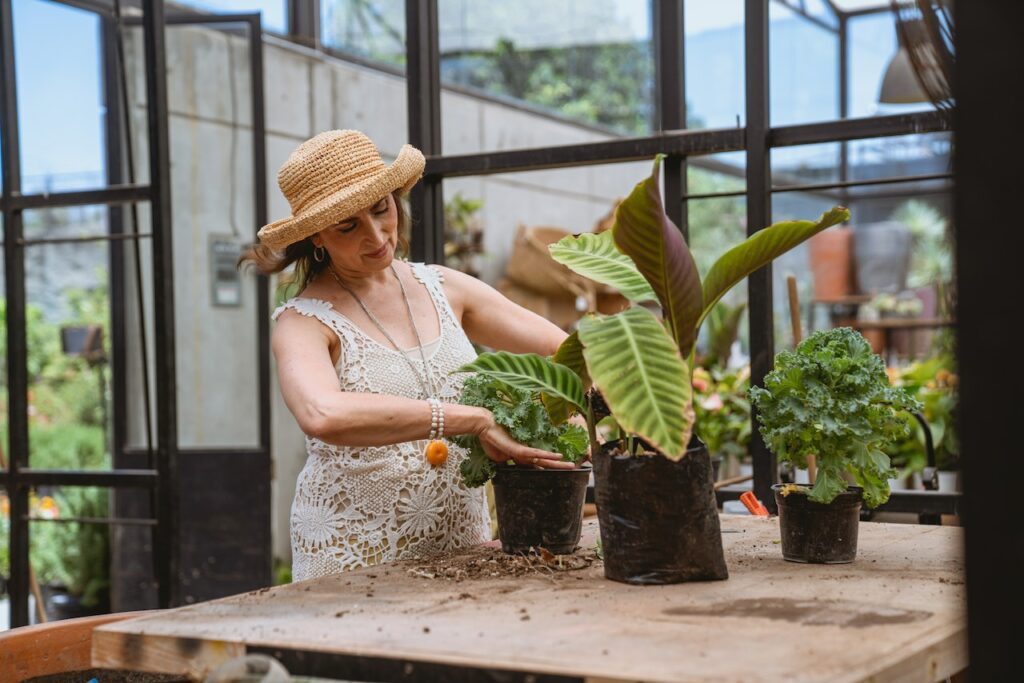Retirement downsizing: Should you do it or not?
Senior downsizing may be a rollercoaster of emotions and choices. I’ve made the switch from city life to the countryside. This move wasn’t only about downsizing; it was about changing my lifestyle and welcoming a new chapter with open arms and heart.
Downsizing is frequently met with excitement and fear. The busy metropolis was my home for decades, where I raised my family, established my business, and made many memories. As retirement neared, a simpler, calmer existence seemed more appealing. I envisioned a pleasant and rewarding retirement in the countryside with its broad fields, serene mornings, and close-knit community.
Downsizing was about self-discovery and letting go, not simply sorting. I packed or gave away every object to start a new life with less responsibilities and more freedom. The exhilaration of making new experiences in a location with diverse beauty and a slower pace of life offsets the sadness of leaving a house full of memories.
Although it may not feel like it, retirement downsizing is both practical and emotional, as I’ll explain later on in this post. My experience, including my obstacles and solutions, will be shared from decision-making to ultimate transfer. I hope my experience and advice will encourage you to downsize, whether you’re moving to the countryside like me or just simplifying your life. Without further ado, let’s get started!

How does downsizing affect you emotionally?
At the start of my retirement, downsizing was a profound change in my lifestyle. The house I was leaving was a painting of my family’s history. Family meals, my grandchildren’s first games in the garden, and innumerable Christmases, birthdays, and anniversaries in the living room still filled the kitchen walls with laughter. Each room represented a chapter of our life, loaded with memories as personal as my pulse.
I held knickknacks that others were knickknacks but treasures to me when it came time to choose what to retain and what to let go. The grandfather clock in the hallway, a wedding present from my parents, kept ticking. My grandkids sent me several drawings and paintings, which I proudly put on the refrigerator door and walls. Choosing what to keep and what to let go was like sorting through my life.
My move to a charming apartment in a bustling seniors’ community was a rollercoaster of emotions. I was overwhelmed the first night since the environment was strange. The quiet contrasted with my previous house’s creaks and moans. However, as weeks passed, this new location developed its own songs. The laughing of new acquaintances in the common room, the joyful chatter on morning walks, and the calm of my new, smaller garden, where I planted new roots, physically and spiritually.
My routines changed in this chapter. I felt freer in a smaller house without the maintenance. I began my days with coffee on the balcony overlooking the communal garden, a luxury I never had time for before. I learned chess in the community room in the afternoons, a game I had always wanted to learn but never had time for. Sure, in the end, I moved again to the countryside to pursue farm living, but this experience taught me something important: life can go on even after retirement downsizing.
The emotional journey of downsizing revealed that life’s richness doesn’t lessen with space. It expands vistas. As I sit in my lovely apartment with loved items and new experiences, I understand that downsizing is about growing, adjusting, and welcoming a new way of life with open arms and a heart.
What are the benefits of downsizing?
Many retirees downsize, which may be freeing and practical due to its many benefits. My downsizing gave me financial independence, simplicity, and ease.
Financial Relief: Downsizing delivers considerable financial relief, which is a strong incentive. I sold my bigger family home to increase my retirement funds and lower my costs. I enjoy that my cozier house has fewer utilities, property taxes, and maintenance expenditures since it’s smaller. Downsizing might save money for vacations, hobbies, or financial stability.
Another benefit of downsizing is a simpler lifestyle. I spent many weekends mending things around the house or gardening. Cleaning and maintaining a smaller place takes much less time. This extra time lets me read, paint, and socialize. The lower physical strain matches our energy levels in our latter years, which is good.
Location Flexibility: Downsizing allows us to move to regions that fit our lives. Moving closer to my children and grandkids has been very gratifying for me. You may also relocate to a better or cheaper area. Retirees contemplating downsizing might choose these U.S. cities:
- Sarasota, Florida: A wonderful blend of leisure and culture, with a bustling arts scene and lovely beaches.
- Asheville, North Carolina: The town of Asheville is perfect for nature lovers and leisurely living with a beautiful mountain background and friendly community.
- Scottsdale, Arizona: Retirees love its mild climate and great healthcare.
- Ann Arbor: Home to the University of Michigan, it provides many educational and cultural possibilities.
- Charleston: Famous for its history, gastronomy, and architecture.
Downsizing in retirement has drawbacks too
Downsizing in retirement has benefits but also obstacles. I had many of the same challenges as many others downsizing. Let’s summarize these issues in a flash:
Moving from a family home with fond memories is emotional. Leaving a building is like leaving a treasure trove of memories and personal history. I found this emotional portion hardest, feeling like I was losing part of my heart.
- Downsizing Logistics: Sorting through decades of possessions is difficult. Deciding whether to retain, sell, or give is physically and emotionally exhausting. It makes you balance emotion with pragmatism.
- Adjustment Period: Moving to a smaller home and neighborhood may be difficult. It meant reconsidering my daily routines, finding new spaces for my possessions, and making a new place seem like home.
- Establishing New Relationships: Socializing takes time. When you’re acclimated to your former surroundings, making new acquaintances and adjusting to a new area or town might be difficult.
- Place Reconfiguration: Living in a smaller place frequently requires rethinking how you utilize and enjoy your living spaces. When downsizing from a bigger family home, this shift might require time and imagination.
These ‘flash cons’ depict downsizing’s challenges and a fresh beginning. Although these problems are essential, they are part of the path to a more bearable and satisfying retirement. Every hurdle conquered is a step forward in this exciting new chapter of life.

Transition tips from my experience
Retirement downsizing may be complicated, and I’ll admit it, but with proper preparation and strategy, it can be rewarding. Since I moved from the city to the countryside, I can provide some practical advice that helped me adjust.
Firstly, I think you should carefully examine your requirements and retirement lifestyle goals. I moved to the countryside to find tranquility and nature. I listed everything I required in my new house and neighborhood, including healthcare and gardening space, and my new interests. If you want to read more about my journey, feel free to check out my post titled “From City Life to Farm Living: My Unexpected Turn in Retirement!”
Now, let’s get back to the main point.
First of all, don’t be afraid to consult professionals! Senior living real estate brokers may recommend houses and locations. Having a professional organizer assist me in arranging my possessions made the process less intimidating.
Of course, becoming emotionally ready for this transformation is just as vital as becoming physically ready. Reminiscing and saying farewell to my former house helped me emotionally prepare for the next journey.
Include family and friends: My family helped me through this change. Share the process with loved ones for emotional and practical assistance. My daughters helped me pack and prepare a goodbye party, a lovely way to end one chapter and begin another.
Take it step by step: Downsizing might be overwhelming, so break things down into simple steps. I addressed each area separately, which reduced tension. Rushing causes tension, so take your time.
After moving to the countryside, I tried to fit in. Joining local clubs and attending community events helped me establish friends and feel at home.
Create a comfortable space. Make your new house feel like home. I emphasized comfort in my rural house by creating a reading nook, a little garden, and a room for family photographs and souvenirs.
Be upbeat and open to change. Finally, stay upbeat. Change may provide great new experiences and chances. Starry evenings, dawn birds, and kind, like-minded neighbors were unexpected benefits of my rural relocation.
Finally, retirement downsizing and relocating to other places – in my case, the countryside – might be difficult, but it’s also a chance to develop and learn. Remember: our lives don’t stop the moment we turn 60 and we should embrace this new phase of our lives!














